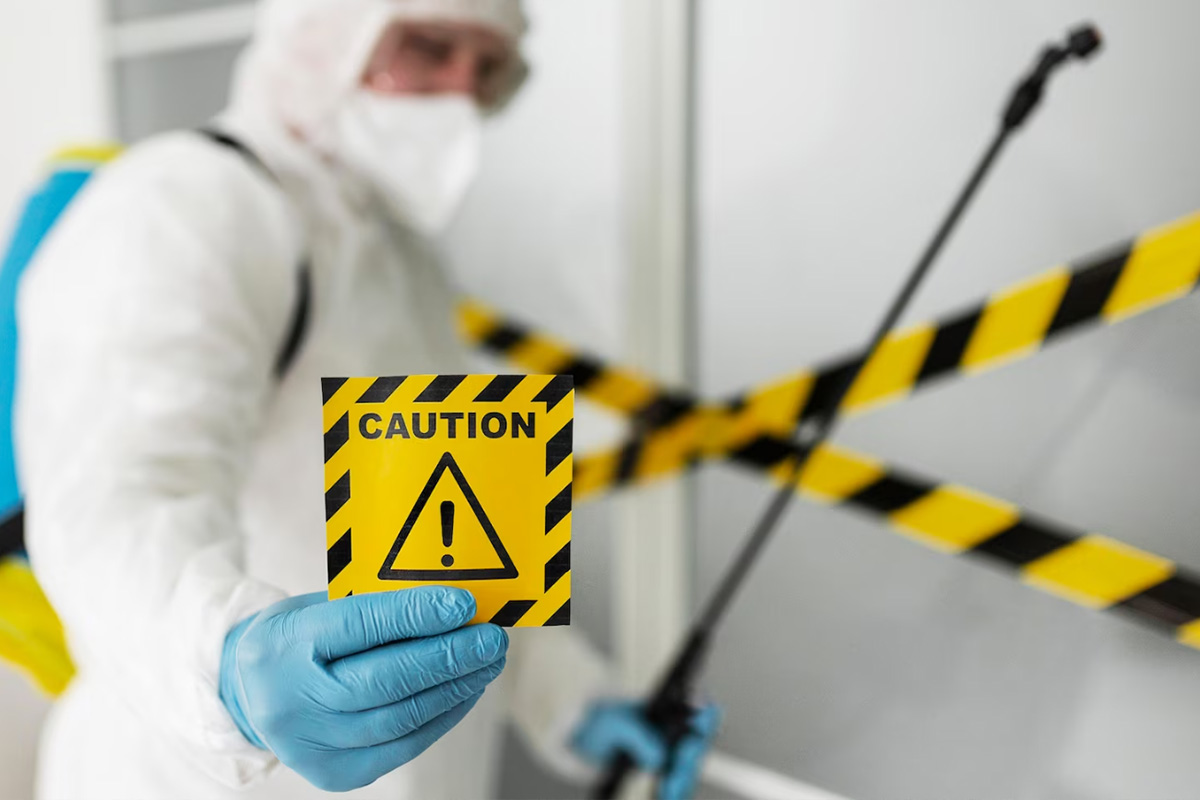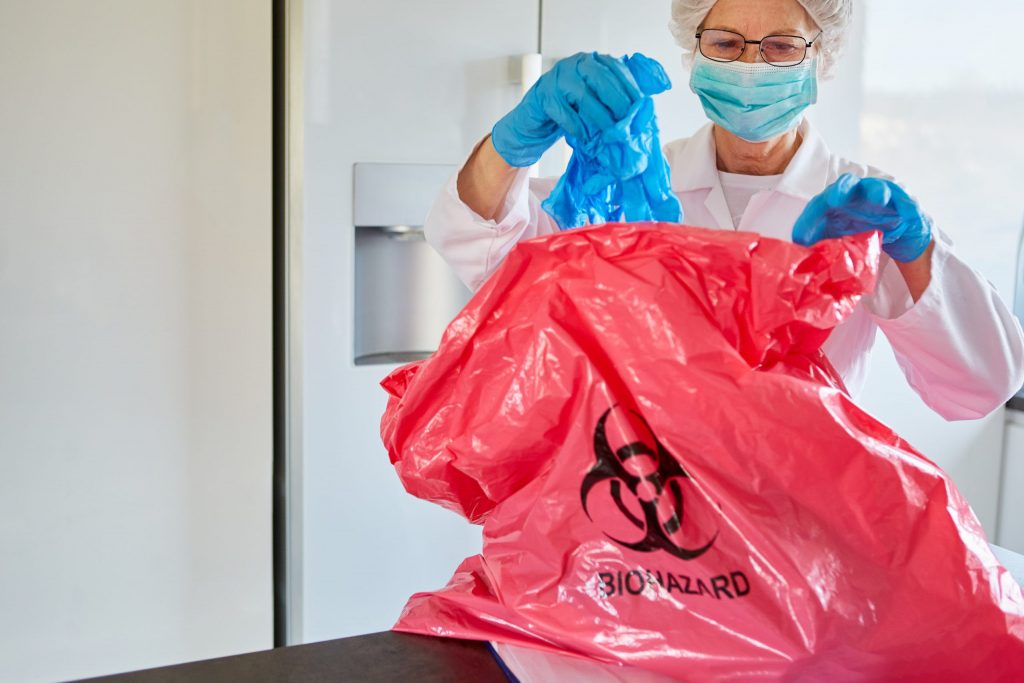Professional Homicide and Suicide Cleanup: Compassionate and Discreet Services
Expert Biohazard Clean-up for Criminal Offense Scenes, Trauma Incidents, and Polluted Areas
In the world of professional biohazard clean-up, meticulous interest to information and adherence to safety and security methods are paramount. When confronted with the results of a crime scene, trauma occurrence, or any polluted area, the relevance of correct cleanup can not be downplayed. The threats and intricacies related to biohazards need specific expertise and experience to ensure effective remediation. As we look into the complexities of biohazard clean-up for these sensitive atmospheres, a deeper understanding of the difficulties and critical treatments involved will emerge, clarifying the crucial duty of specialist cleaning solutions in recovering safety and security and tranquility of mind.

Significance of Biohazard Cleaning
Biohazard cleanup adhering to crime scenes and injury occurrences is essential for making certain the security of people and the environment. When these cases occur, they commonly leave behind a range of biohazards such as blood, bodily fluids, and other possibly infectious materials. These materials can harbor unsafe pathogens like infections and microorganisms, positioning significant health risks if not effectively cleaned and sanitized.
Expert biohazard clean-up solutions are trained to deal with these harmful materials securely and effectively. They have the required devices, such as individual safety gear and specialized cleaning up representatives, to thoroughly decontaminate the impacted areas. By delegating the clean-up to experienced professionals, individuals can stay clear of exposure to unsafe microorganisms and avoid the spread of infectious illness.
In addition, correct biohazard cleaning is essential for securing the setting. Inappropriate disposal of biohazardous products can infect dirt, water resources, and air, positioning a hazard to wild animals and the ecological community. By adhering to strict clean-up procedures, professionals can ensure that biohazards are safely gotten rid of and disposed of according to laws, lessening the danger of environmental contamination.
Kinds Of Biohazards Encountered
Different dangerous products frequently run into in criminal activity scenes and injury incidents present substantial wellness dangers if not dealt with correctly. Blood and physical liquids are among one of the most common biohazards discovered in these situations. These liquids can carry pathogens such as HIV, liver disease B and C, and other dangerous microorganisms. In addition, tissues, body organs, and body parts can also present serious wellness risks because of prospective contamination.
An additional sort of biohazard typically experienced is sharp things like needles, broken glass, and other things that can trigger injuries and transmit infections. Chemical dangers are also a worry, as criminal activity scenes may have compounds like tear gas, pepper spray, or medicine production materials that need customized handling and disposal procedures to stop more harm.
Additionally, mold and mildew and germs development can take place in spaces where decay or long term direct exposure to moisture has taken place. These microorganisms can launch toxic substances and allergens into the air, posing respiratory dangers to those revealed. On the whole, biohazard cleanup professionals should be qualified and fully equipped to successfully deal with these numerous kinds of unsafe products to make certain the security of themselves and others.
Equipment and Safety Equipment
When resolving the essential task of managing biohazards encountered in criminal activity scenes and injury events, the application of appropriate tools and safety equipment is vital to ensuring the security of people entailed in the cleaning procedure. Specialized cleaning tools like biohazard anti-bacterials, bags, and sharps containers are required for the risk-free collection and disposal of infected materials. Ensuring that all equipment is properly maintained, routinely checked, and used according to safety and security standards is important in decreasing the risk of exposure to biohazards during cleanup operations.
Clean-up Refine and Strategies
Detailed and effective clean-up of biohazardous products from crime scenes and trauma cases needs meticulous focus to detail and adherence to strict safety and security procedures. The cleanup process normally involves several essential steps.
Complying with the removal of biohazardous materials, the affected area undertakes a detailed cleaning and sanitation process. This step includes making use of specialized cleansing agents and tools to ensure that all traces of contamination are eradicated. After cleaning, the location is subjected to rigorous testing to verify that it is safe and complimentary of any kind of staying biohazards.

Decontamination and Disposal Procedures
To guarantee detailed purification and correct disposal of biohazardous products, complying with the precise cleanup process, details treatments need to be thoroughly adhered to with strict adherence to security protocols. Decontamination entails the removal or neutralization of contaminants to decrease the danger of exposure and spread of hazardous materials. This process normally includes cleaning, decontaminating, and sterilizing the affected area making use of specific equipment and EPA-approved chemicals.
As soon as decontamination is finished, proper disposal of biohazardous products is essential to prevent more contamination or damage. Biohazardous waste, such as blood-soaked products or bodily liquids, must be meticulously collected, packaged, and identified according to governing standards. ATP testing. These products are then moved to accredited centers for disposal through appropriate channels, making clean up blood spill sure conformity with regional, state, and government laws

Verdict
Finally, expert biohazard cleaning is critical for ensuring the safe and reliable removal of dangerous materials from criminal activity scenes, injury cases, and polluted areas. By making use of specialized equipment, protective equipment, and adhering to correct clean-up processes and strategies, biohazard clean-up teams can efficiently decontaminate and get rid of of biohazards, minimizing the threat of exposure and harm to people and the atmosphere.
As we delve right into the complexities of biohazard cleanup for these delicate atmospheres, a deeper understanding of the obstacles and important procedures entailed will emerge, shedding light on the indispensable function of professional cleaning services in recovering security and tranquility of mind.
Expert biohazard cleaning services are educated to deal with these unsafe products securely and efficiently. By complying with stringent cleanup methods, experts can ensure that biohazards are safely gotten rid of and disposed of in accordance with guidelines, reducing the threat of environmental contamination.
Generally, biohazard cleanup experts have to be experienced and well-equipped to successfully take care of these various types of dangerous materials to make sure the safety of themselves review and others.
When addressing the essential job of managing biohazards run into in crime scenes and trauma events, the blood cleanup near me use of appropriate tools and safety equipment is paramount to guaranteeing the security of individuals included in the cleaning procedure.